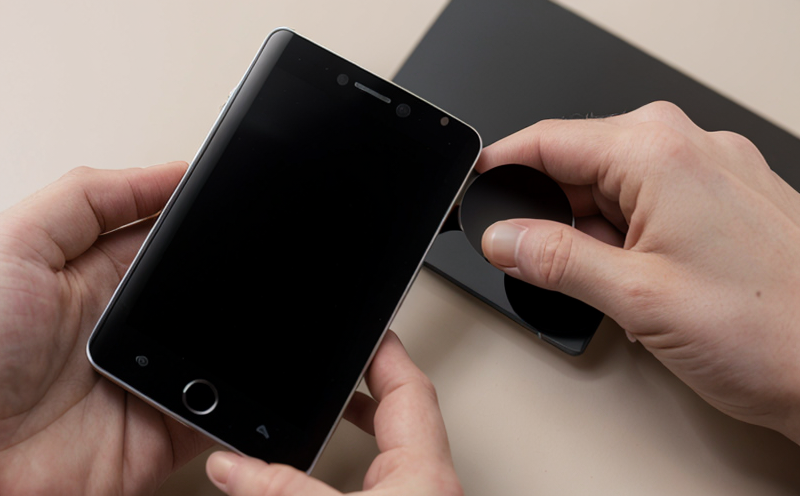ISO 15184 Pencil Hardness of Thin Layered Surfaces
The ISO 15184 pencil hardness test is a critical method used to evaluate the scratch resistance and durability of thin-layered surfaces, including nano films. This standard is widely recognized for its precision in quantifying how well a surface can withstand mechanical abrasion from pencils with varying degrees of hardness.
This testing procedure involves using pencils of different hardness ratings (e.g., HB, 2B) to draw lines across the sample surface and assessing the extent of penetration or damage. The test is particularly valuable for applications in nanotechnology, where thin films are often used in electronic devices, coatings, and other advanced materials.
The process begins with preparing a representative specimen that accurately represents the properties of the thin layer under study. The specimen must be clean and free from contaminants to ensure accurate results. Once prepared, it is subjected to pencil abrasion according to the specified procedure outlined in ISO 15184. During this test, the hardness rating of the pencil used determines the level of pressure applied during the drawing process.
The key parameter measured in this test is the maximum hardness that can be drawn across the surface without causing visible damage or penetration. This value provides insight into the durability and quality of the thin-layered surface being tested. The results are typically reported as a numerical value corresponding to the pencil hardness rating capable of achieving the specified level of resistance.
Understanding the pencil hardness test is crucial for various industries, including electronics manufacturing, where the robustness of protective coatings is vital. In nanomaterials testing, this method helps in evaluating how well these thin films can withstand environmental and operational stresses without deteriorating.
The ISO 15184 standard ensures consistency and reliability across different laboratories by providing a standardized procedure for conducting pencil hardness tests on thin-layered surfaces. This consistency is essential for comparative studies and regulatory compliance, particularly in sectors such as electronics manufacturing and nanotechnology research.
One of the significant advantages of this test lies in its ability to provide quantitative data that can be used to optimize production processes and material selection. By identifying the optimal hardness level for a given application, manufacturers can enhance product performance while minimizing costs associated with material wastage or rework.
The pencil hardness test also plays an important role in environmental sustainability efforts by enabling more efficient use of materials through optimized design and manufacturing practices. This contributes to reduced waste and energy consumption throughout the lifecycle of a product.
- Reduces raw material usage
- Minimizes disposal challenges for non-durable products
- Supports circular economy initiatives by promoting reusability of materials
- Promotes energy-efficient manufacturing processes through optimized design
Why Choose This Test
Selecting the ISO 15184 pencil hardness test for evaluating thin-layered surfaces offers several benefits that make it an ideal choice for quality managers, compliance officers, and R&D engineers:
Accurate Assessment of Durability: The pencil hardness test provides a precise measurement of a surface's ability to resist mechanical abrasion. This information is invaluable in ensuring the longevity and reliability of products.
Standardized Procedure: By adhering to ISO 15184, laboratories ensure that tests are conducted consistently across different facilities. This consistency enhances comparability between results from various sources, which is crucial for regulatory compliance and research integrity.
Industry Recognition: The pencil hardness test is widely accepted in industries reliant on thin-layered surfaces. Its recognition within the scientific community ensures that the test results are respected and trusted by all stakeholders involved.
Cost-Effective Solutions: Optimizing production processes based on pencil hardness test data can lead to significant cost savings. By selecting materials with appropriate hardness levels, manufacturers reduce waste and improve efficiency.
Rigorous Testing Standards: The ISO 15184 standard guarantees that the testing process adheres to rigorous quality control measures, ensuring accurate and reliable results.
Customer Impact and Satisfaction
Choosing our ISO 15184 pencil hardness test service can significantly impact your customers' satisfaction by delivering high-quality products that meet stringent durability standards. By selecting this testing method, you demonstrate a commitment to excellence in product design and manufacturing.
Our laboratory adheres strictly to ISO 15184 guidelines, ensuring that every test conducted is accurate and reliable. This attention to detail translates directly into superior product performance, which ultimately enhances customer trust and satisfaction.
The pencil hardness test helps manufacturers optimize their production processes by identifying the optimal hardness level for their products. This leads to reduced material waste and improved efficiency, resulting in cost savings that can be passed on to consumers.
Moreover, our service ensures regulatory compliance with international standards, which is essential for meeting market requirements and expanding into new regions. By choosing us, you ensure that your products are not only high quality but also meet all necessary legal and industry-specific criteria.





